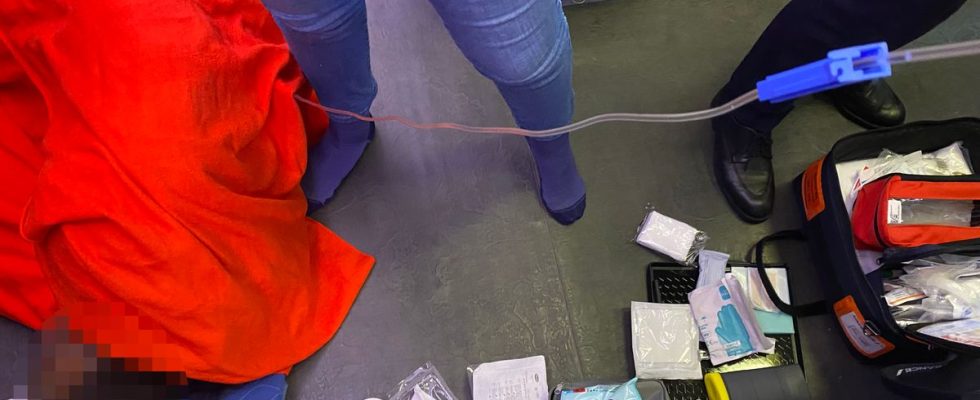The law of series. On August 26, just six months after assisting a passenger suffering from a stroke, resuscitation doctor Vincent Lui-Bousquel returned to the aid, once again in mid-flight, of a man struck by a heart attack. It was between Seoul and Roissy on flight AF 267. Medically treated with the means at hand, his two patients were able to be treated in time, once their plane arrived on the tarmac.
But precisely these “means at hand”, the 34-year-old practitioner from Nice, volunteer in the Air France “Community of doctors on board” program (a “community of doctors on board” who can be called to the rescue), thinks that They can still be improved. Vincent Lui-Bousquel was able to speak with the French company’s medical advisor this Thursday for “feedback” in this sense.
“Formal contraindications to air travel”
So how can we improve the care of patients in danger of death when we are stuck at 40,000 feet? The resuscitation specialist believes, “and it is the same for all companies” according to him, that “we should first make an effort in terms of informing passengers”. “And in particular on the formal contraindications to air travel. When we check in, we are reminded that we must not board with a grenade or a pistol, but nothing is said about the fact that it is strictly not recommended to fly in the month following a pneumothorax or a heart attack. myocardium or even when you have an ear infection, he points out. Doctors may forget to specify it, companies have a role to play. »
On its website, Air France gives the main recommendations but a note, at the time of booking for example, “would be a very good thing”, he says. It would make it possible to tackle the problem at its roots by perhaps reducing the number of emergencies on board. According to a study published in 2013 in the New England Journal of Medicinethey occur on average in one flight in 604.
The ideal would also be, according to the resuscitation doctor, for all passengers to take with them their medical records, “or at least some information on their history and treatments, which is essential in the event of discomfort. »
Electrocardiograms and vasopressors
Its second recommendation concerns the knowledge of the flight crew. On the front line to assist a doctor who has to intervene in flight, stewards and hostesses must be as efficient as possible, every second being counted to maximize the chances of survival. “They receive solid first aid training but they lack certain knowledge of medical jargon,” says Vincent Lui-Bousquel. A day of training or even a detailed document could improve this. During the heart attack in August, I had difficulty making myself understood when setting up an IV. I wasn’t necessarily handed the right tools right away. »
The question of on-board medical equipment also raises questions according to the Nice doctor. “There is an automatic defibrillator but we also need an ECG [électrocardiographe qui réalise des électrocardiogrammes] to be able to monitor the activity of the heart and know when to administer medications most effectively.” “Other medications are also needed, particularly vasopressors. [pour augmenter la tension artérielle]. »
Recommendations that “can apply to all companies”
So many points that the resuscitator would like to discuss with the Air France medical advisor “knowing that all these recommendations can be addressed to all companies”, he underlines again. “The support can be further improved,” he assures.
For his part, Dr. Vincent Feuillie, referent of the French company, recalled this summer in an interview given to the specialized media Egora.fr that “a study carried out a few years ago showed that the survival rate for cardiorespiratory arrest is superior on board an airplane. More important in any case than in the case of illnesses which occur in private, at home, and without witnesses.

